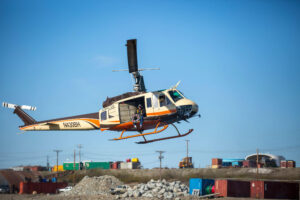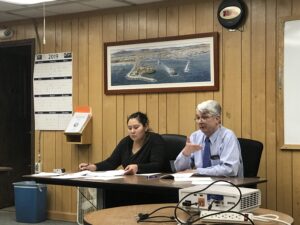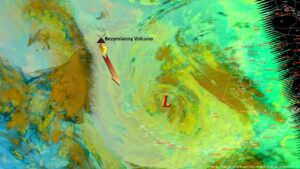This article by Lex Treinen was originally published by Alaska Public Media. It was republished with permission through a partnership with KNOM.
Ryan Redington is the 2023 champion of the Iditarod Trail Sled Dog Race.
Redington and his team of six dogs cruised down Front Street in Nome at 12:13 p.m. Tuesday to claim his first Iditarod win on his 16th try. The team was led by 4-year-old Sven and 6-year-old Ghost. Redington pumped his fists in the air as the crowd cheered. Temperatures hovered in the single-digits on the sunny afternoon. He pet each of his dogs. He got hugs from family. He thanked the fans.
“It means everything to bring that trophy home,” said Redington in the finish chute. “And, yeah, it’s been a goal of mine since a very small child, to win the Iditarod. And I can’t believe it. It finally happened. It took a lot of work, took a lot of patience, and we failed quite a few times, you know, but we kept our head up high and stuck with the dream.”
Redington, 40, has deep mushing roots, and his Iditarod win is the first in his family.
In White Mountain Sunday, 77 miles to the finish, Redington said it’d be an honor to get the win.
“It’d be a really good thing for the race and Alaska and for my family,” he said. “Pretty major event grandpa started here.”
Redington’s grandfather, Joe Redington Sr., is a founder of the Iditarod. Ryan Redington is the son of Raymie who has raced a dozen Iditarods and he’s the nephew of Joee, who placed third in 1975. His brothers, Ray and Robert, have also competed. Ray’s highest finish was fourth and Robert’s was 22nd.
Ryan Redington, a father of three now, splits his time between Wisconsin and Knik, where he grew up mushing and playing basketball.
Redington began racing the Iditarod in 2001. He scratched from seven of his first 12 races, and then appeared to hit his stride in 2020. He placed in the top 10 that year, and then the next two years after that. Before Tuesday, his highest finish was seventh in 2021. That same year, he won the Kobuk 440 in a competitive field and was the only musher to complete the entire course after extreme conditions forced several other contenders to call in a rescue. He has also won the competitive 300-mile Beargrease Sled Dog Marathon in Minnesota twice.
His victory Tuesday makes him not only the first Redington to win the Iditarod, but also the first musher to win both the 1,000-mile race and the Jr. Iditarod. He won the junior race in 1999 and 2000.
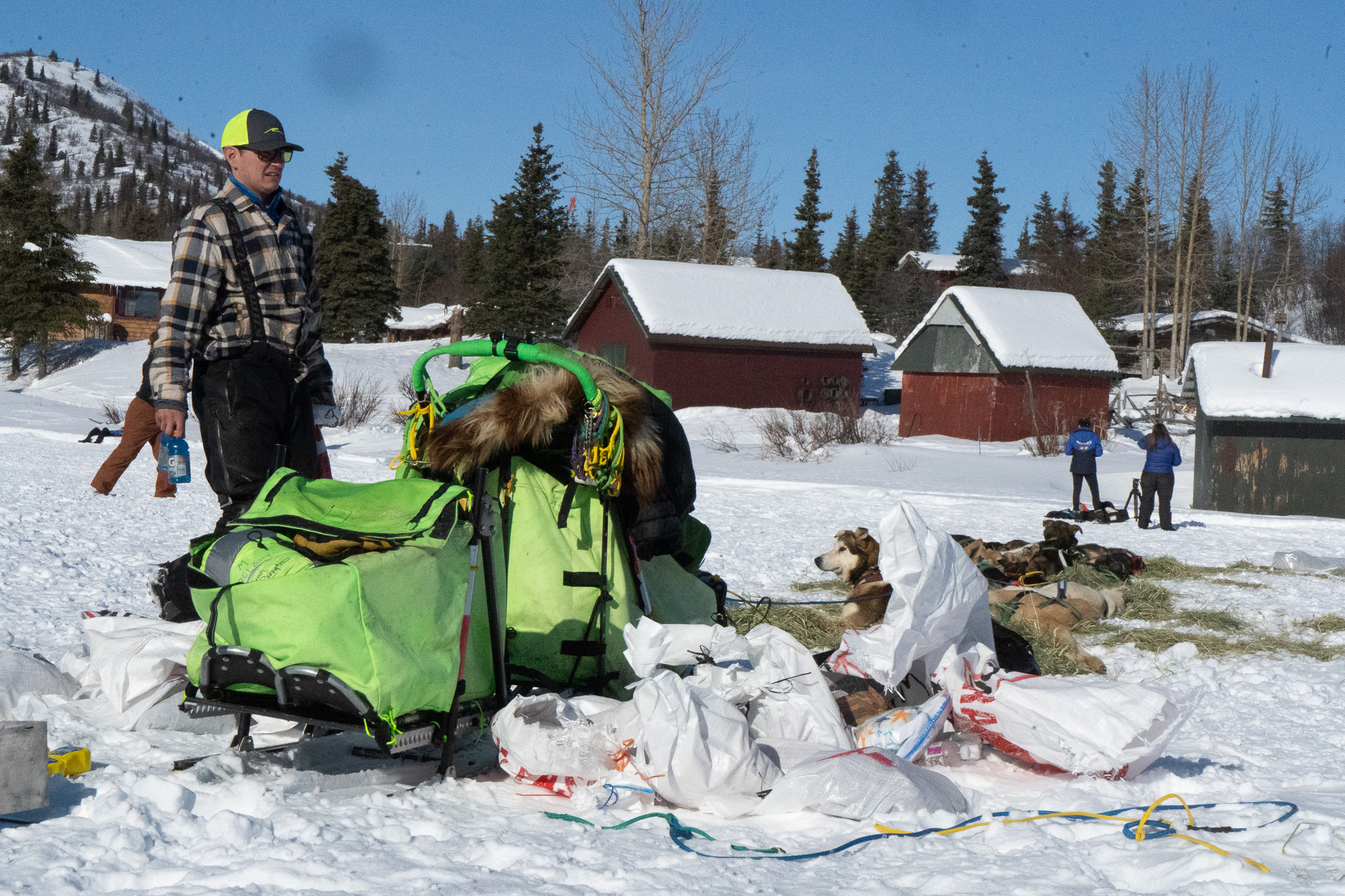
In this year’s Iditarod, Redington was near the front of the pack from the beginning of the race. He was the first musher to Rainy Pass, resting through the relatively warm hours of the day, when temperatures rose above freezing.
He continued to run toward the front of the pack, arriving first in McGrath, near race mile 300. But by the time teams reached the Yukon River, about halfway through the race, Redington appeared to have fallen behind 2022 champion Brent Sass and Jessie Holmes.
“I’m just hoping they goof each other up, push each other a little too much,” Redington said at the Grayling checkpoint about his chances of winning.
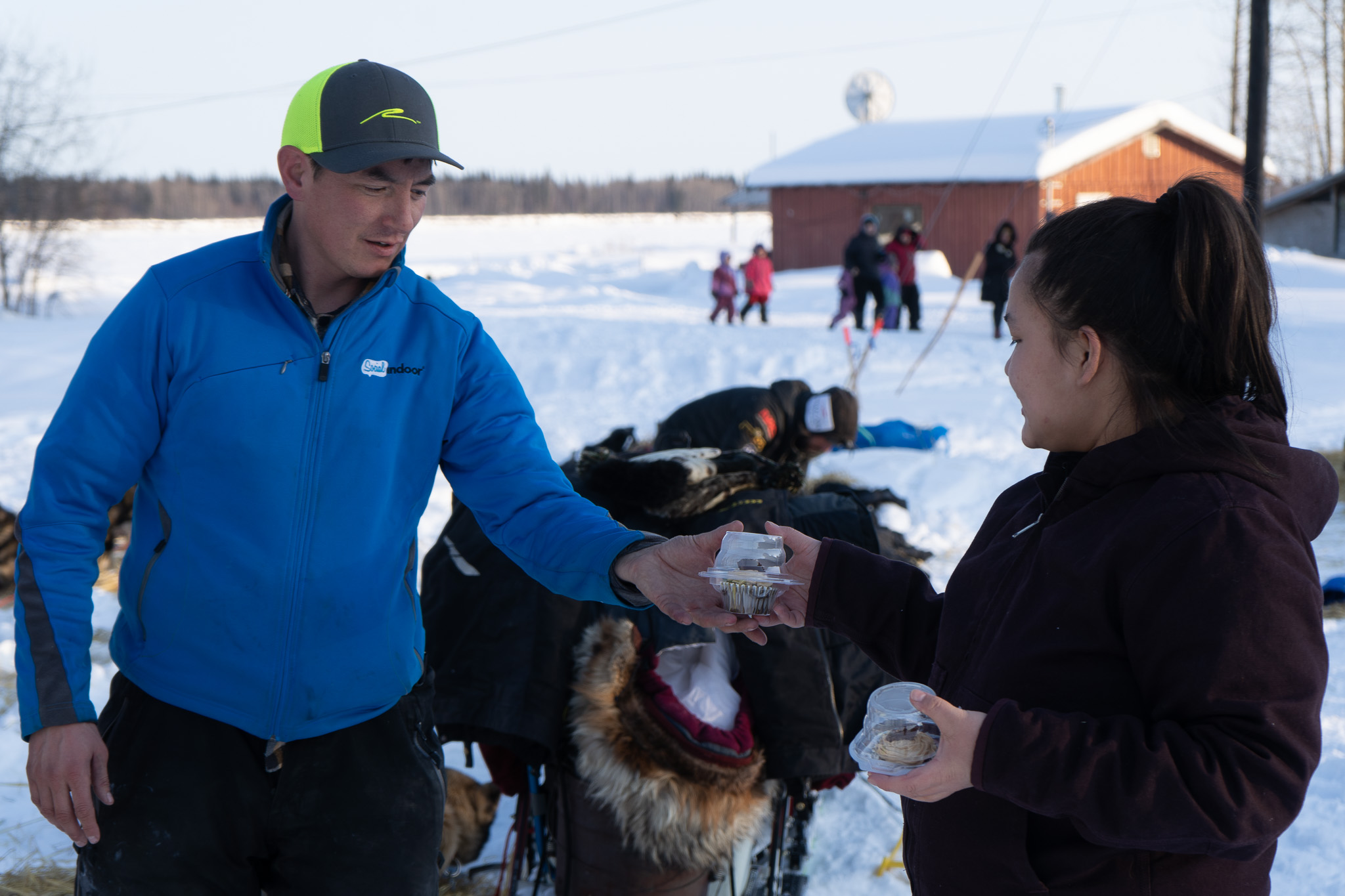
At the next checkpoint, Sass scratched, saying he had a bad cold and serious pain from three cracked teeth. Farther down the Yukon River, Holmes’s team faltered, taking long and frequent rests on the trail. Holmes said he had hoped to take his mandatory eight-hour rest in Shageluk but discovered his drop bags hadn’t arrived. So he pushed down the trail another 25 miles to Anvik. He said his team lost its spark after that run.
Sass and Holmes’s exit from the top of the race gave Redington a window to victory, along with 2019 champion Pete Kaiser of Bethel and Aniak’s Richie Diehl. The three mushers, all Alaska Native, arrived in Kaltag within 32 minutes of one another, with Redington leading the way and with just 350 miles to the finish line.
But it was only Redington who gambled on a marathon run to the Bering Sea coast. His team cruised down an 85-mile section of trail to arrive in his mom’s birthplace of Unalakleet early Sunday. He said it felt like a “childhood dream coming alive.”

He left across the sea ice toward Koyuk after a few hours of rest, with Kaiser trailing 50 minutes behind.
Kaiser at first appeared to be clawing back time on Redington, but then he stopped in Elim for more than five hours while Redington’s team charged ahead, stopping only for a few minutes throughout a 94-mile, more than 13-hour stretch. Kaiser said he realized he couldn’t catch up to Redington, so he opted for the extended stop. He reasoned that if something unexpected happened to Redington’s team on the notoriously unpredictable coast, his team would be ready to take the lead
Kaiser’s decision let Redington arrive in White Mountain with a comfortable lead. After his mandatory eight-hour rest, he left the checkpoint at 12:15 a.m. Tuesday, four hours ahead of Kaiser and Diehl, who departed within minutes of one another.
From there, he and his dog team mushed through heavy winds on the last 100 miles of the race to Nome.
This is a developing story. Check back for updates.
Image at top: Ryan Redington and his six-dog team led by Sven and Ghost are first into Nome on Tuesday. (Lex Treinen/Alaska Public Media)



